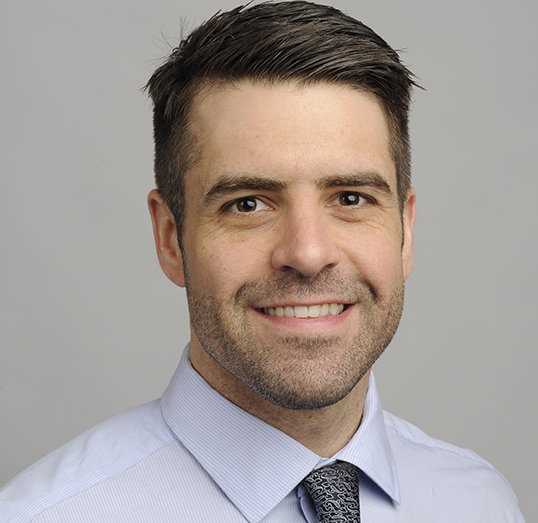Dr. Stephen Hatfield, the Principal Research Scientist at the New England Inflammation and Tissue Protection Institute, and Lecturer of Biotechnology and Bioinformatics sits down with the College of Science Graduate Program staff to talk about his research at Northeastern University.
Tell us about your current research.
Biomedical research at the New England Inflammation and Tissue Protection Institute (NEITPI) ranges from biochemical studies of the pathophysiological effects of signaling through G-protein-coupled receptors to the development of anti-cancer immunotherapies. The ongoing and future research of scientists at NEITPI is designed to inform the clinical trials of anti-hypoxia-adenosinergic immunotherapies of cancer.
As a principal research scientist at NEITPI, my research has focused on the molecular mechanisms mediating immune-suppression in hypoxic inflamed and cancerous tissues. Our laboratory was one of the first to discover the regulatory role of A2A Adenosine Receptors on the surface of lymphocytes. When triggered by the molecule adenosine, these evolutionarily conserved receptors induce immunosuppressive signaling that downregulates the effector functions of immune cells, including T cells and Natural Killer (NK) cells.
Our studies in the field of cancer immunology have demonstrated that the tumor microenvironment is both hypoxic (low oxygen tension) and extracellular-adenosine rich, which inhibits anti-tumor T cells and NK cells through the activation of A2A Adenosine Receptors. Data from our pre-clinical animal research have been instrumental in the development of clinical trials that aim to use therapeutic antagonism of Adenosine Receptors to treat a variety of cancers.
What drew you to your field?
There is an acute need to prevent cancer and to improve tumor rejection, thereby improving patient survival. Using a patient’s own anti-tumor T cells represents a complementary cancer treatment strategy since chemo- and radiation therapies often result in eventual resistance of tumors and relapse. While cancer immunotherapy is a promising approach, until recently it has been largely ineffective for many reasons, including an immune-suppressive tumor microenvironment. Our goal is to address these major unsolved medical problems by developing conceptually novel strategies of cancer immunotherapy.
What do you like most about working in Northeastern’s New England Inflammation and Tissue Protection Institute?
One of the most exciting aspects of research at NEITPI is the opportunity to work on cutting edge pre-clinical immunotherapies. We are fortunate to have collaborative ties with leading scientists and oncologists in both academia as well as biotech. We are very excited at the clinical promise of combining our co-adjuvant therapies with existing immunotherapies of cancer.
What do you like most about being a faculty member at Northeastern?
Since 2007, I have had the opportunity of teaching here at Northeastern. As a result, I have had the pleasure of interacting with and educating both graduate and undergraduate students in biomedical research in the areas of immunology, biochemistry, mouse genetics, and pre-clinical models of human diseases. It is very rewarding to witness not only the progress of our research and research in the field, but also the simultaneous progress of our many students both in laboratory and classroom settings. Many have been motivated to continue their education as MD, PhD, or MD/PhD students and have been admitted to highly competitive programs or have joined the ranks of the next generation of scientists in major biotech. companies.
What is your favorite part about Northeastern?
Northeastern provides an excellent environment for students to explore their research interests. The incredibly diverse research expertise of the Northeastern faculty allows students the ability to conduct research in virtually any field of interest. The students here at Northeastern are also very high caliber and many demonstrate a true passion and dedication to research. Their contribution to the progress of our work has been critical to the success of our research projects.
What is your favorite part about Boston?
Another great aspect of Northeastern is the location. Not only is Boston home to some of the world’s leading research universities, institutions and hospitals in the country, but a true hub of the biotechnology world. Our lab has enjoyed the benefits of local collaborations and meetings with top scientists and clinicians. Boston is also never a boring city − always something new to explore.
What advice would you give to new and current COS graduate students?
The best advice I can give is to take full advantage of your time at Northeastern. Northeastern has established an excellent research community with faculty members that are happy to lend advice, share expertise, and train students to become successful researchers in the lab. Taking advantage of these resources and opportunities is a great way to expand your research interests, expertise, and scientific network.

